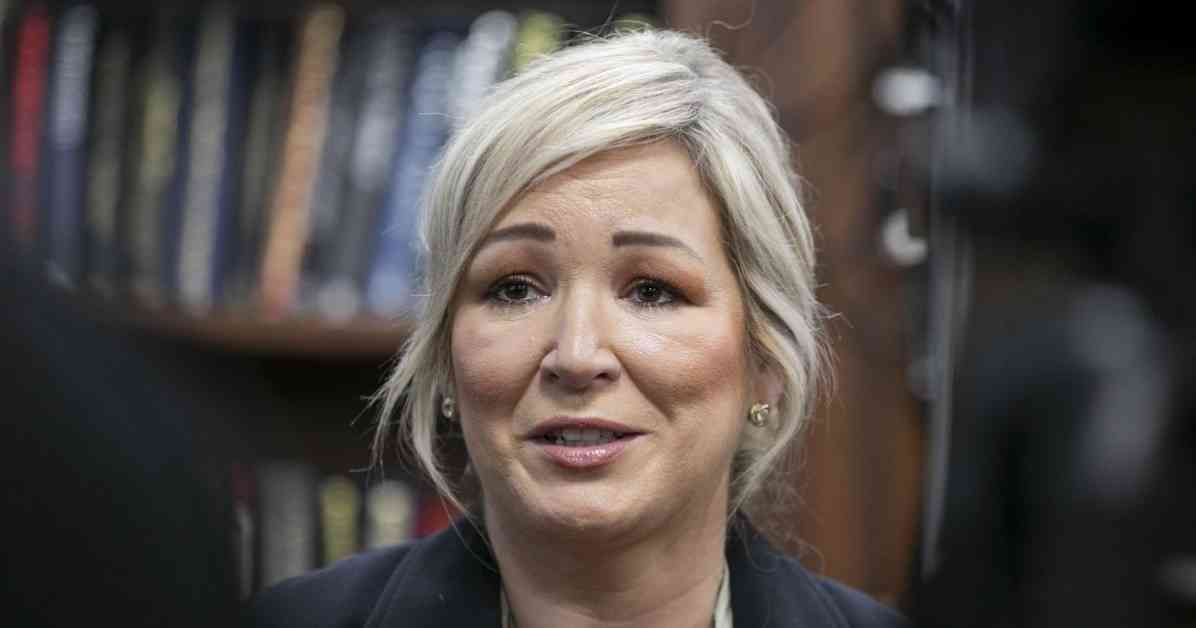In a recent development, the leader of the Democratic Unionist Party (DUP) has raised eyebrows by suggesting that Sinn Fein’s decision to boycott the White House is a strategic move to position First Minister Michelle O’Neill for a potential presidential bid in Ireland. The controversy arose when Sinn Fein announced that their president, Mary Lou McDonald, and vice president, Michelle O’Neill, would be skipping the annual St. Patrick’s Day events in Washington, DC. The party cited their principled stance against US President Donald Trump’s controversial remarks regarding the displacement of Palestinians from Gaza as the reason for their boycott.
DUP leader Gavin Robinson expressed skepticism about Sinn Fein’s motives, describing their stance as “a bit odd.” He pointed out the inconsistency of Sinn Fein’s decision to boycott events in Washington during a ceasefire in Gaza, especially since they had attended similar events in the past when the conflict was ongoing. Robinson suggested that Sinn Fein’s actions were aimed at boosting their left-wing credentials in preparation for the upcoming presidential election in Ireland later this year. He noted that the press conference announcing the boycott was held in Dublin, hinting at a political maneuver to garner support.
Despite the criticism, Michelle O’Neill defended Sinn Fein’s decision, emphasizing her commitment to being a First Minister for all. She maintained that the party’s choice to boycott the White House events was a matter of conscience and humanity. O’Neill expressed her discomfort with participating in festivities at the White House while the US administration was threatening to displace Palestinian people and abandon the two-state solution. She highlighted the importance of standing up for human rights and solidarity in the face of adversity, even if it meant forgoing traditional diplomatic engagements.
While Sinn Fein will not be present at the White House events, O’Neill assured that the party will continue to engage with the US administration on economic matters. She mentioned an upcoming trip to North Carolina as part of an economic mission focused on job creation, underscoring the party’s commitment to advancing economic interests and fostering international relations.
The decision to boycott the White House events comes at a critical time, with the next Irish presidential election looming on the horizon. Candidates have yet to be officially declared, but the political landscape is already shaping up for a competitive and contentious race. The election must take place by late October, adding urgency to the preparations and strategies of potential candidates vying for the highest office in Ireland.
As the political drama unfolds and the stakes continue to rise, the actions and statements of key players like Sinn Fein and the DUP will undoubtedly influence the trajectory of the upcoming presidential election. The dynamic interplay of principles, strategies, and alliances in the lead-up to the election will shape the political landscape of Ireland for years to come. Stay tuned for more updates on this evolving story as the race for the presidency heats up and candidates position themselves for the ultimate prize.




